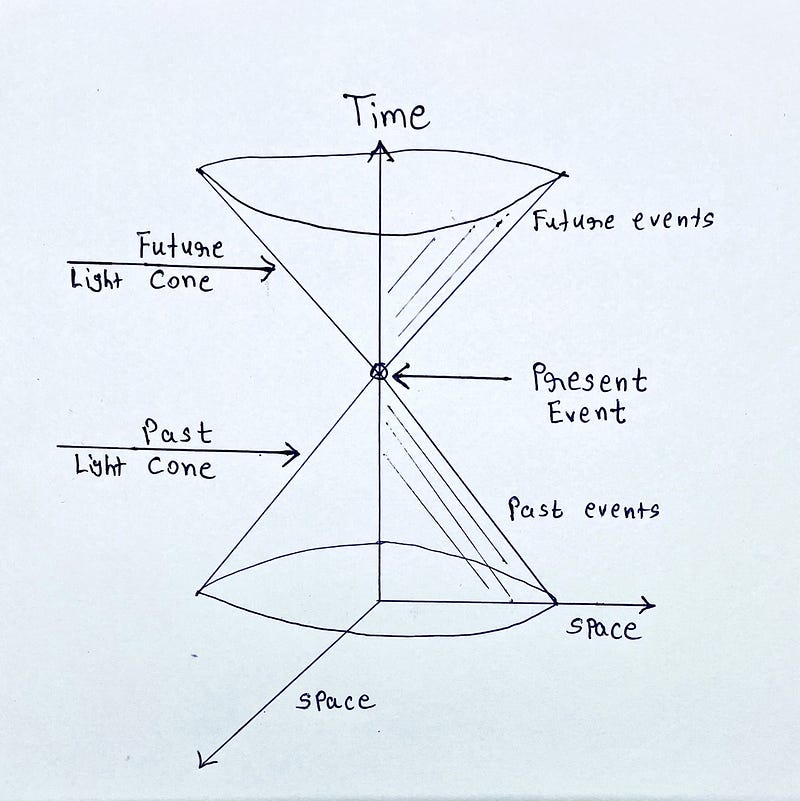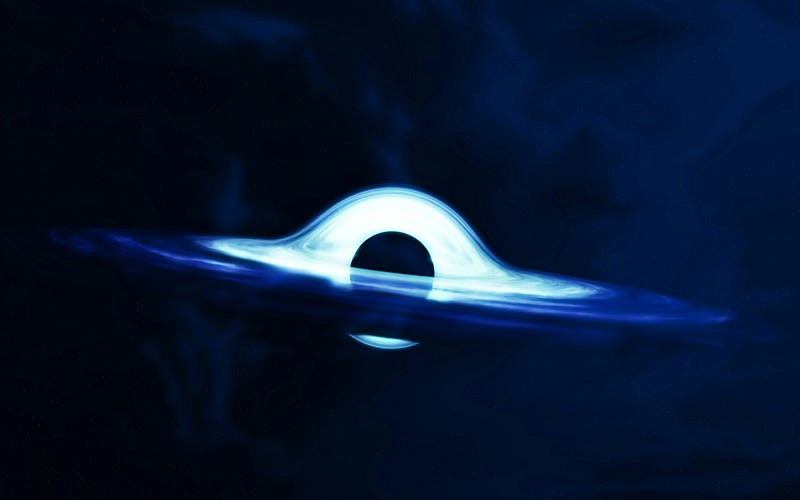Understanding Time Travel: Why Paradoxes Are Unlikely
Written on
Chapter 1: The Enigma of Time
Time is one of the most intriguing and enigmatic aspects of our existence. While it is something we all experience, fully comprehending it remains a challenge. Time travel has captured our imagination, but it introduces a series of perplexing paradoxes that arise when we contemplate the idea of traversing through time. What if we could clarify these confounding paradoxes by understanding a fundamental principle: the “Arrow of Time”?
A Quick Overview of Time Travel Paradoxes
Let’s briefly explore some well-known time travel paradoxes to understand why they may not be as practical as they initially appear.
The Grandfather Paradox
Imagine you invent a time machine and go back to the past, inadvertently preventing your grandfather from meeting your grandmother. If your grandfather doesn’t meet your grandmother, then your parents—and subsequently you—would never come into existence. This creates a logical loop, suggesting that time travel might lead to confusion.
The Bootstrap Paradox
Picture this scenario: you travel back in time and provide a scientist with a copy of his own work. He then publishes it as his own, and later, you discover these works and use them to inspire your own time travel efforts. The question arises: who is the original author? This creates a self-sustaining loop that raises questions about the origins of ideas and objects.
The Predestination Paradox
Now consider this: you go back in time to ensure a certain event occurs, only to find out that your actions in the past were the very reasons for that event happening. For instance, if you try to prevent a disaster but inadvertently cause it, this paradox demonstrates that your actions are predetermined to ensure the event occurs, forming a closed causal loop.
These paradoxes, while fascinating, highlight the complexities that accompany time travel and demonstrate why moving backward in time might be more problematic than it seems.

What is the Arrow of Time?
The “Arrow of Time” refers to the unidirectional flow or asymmetry of time. Visualize time as an arrow soaring through the air, moving forward but never backward. This concept is vital for understanding the workings of our universe. In his book, A Brief History of Time, Stephen Hawking discusses this concept through a cone diagram, illustrating how time advances in one direction: toward the future.
The Arrow of Time signifies the direction in which time moves—forward, from the past to the future.

Imagine a cone that expands from a point in spacetime; the tip represents the present moment, while the broader end symbolizes the future. Time flows along the cone's axis, moving forward and never retreating. This illustration helps explain the difficulties associated with time travel: since time advances in a single direction, attempting to travel backward would contradict the natural order of events.
The crucial point is that time flows in a specific direction, and everything in the universe follows this trajectory. This flow is what inhibits us from experiencing events in reverse, such as unbreaking a glass or witnessing a sunset rise in the west.
Why Time Paradoxes Cannot Exist
Time paradoxes, like the Grandfather Paradox, Bootstrap Paradox, and Predestination Paradox, stem from the notion of changing the past. However, the Arrow of Time indicates that these paradoxes are impossible because time only moves in one direction. Time dilation, a concept from Einstein’s theory of relativity, demonstrates that while time can slow down under certain circumstances (like near the speed of light or near a black hole), it cannot reverse.
Even if we were to develop a time machine, the very nature of time, as described by the Arrow of Time, would prevent backward movement. Any effort to change past events would either be in vain or create a paradox that stops the change from happening. For example, if you traveled back to prevent an event, you would either find it impossible or discover that your attempts create a new paradox.
The Impossibility of a Time Machine
While the idea of a time machine is thrilling, the Arrow of Time suggests that it’s unlikely to function as we envision. The laws of the universe prohibit reverse time travel. If you attempted to alter past events, you would either fail or create a timeline where the alteration never occurred, thus neutralizing the paradox.
Time Dilation Cannot Be Negative
Einstein’s theory of relativity introduces time dilation, where time slows relative to an observer moving at high velocities. However, time dilation can never be negative; it cannot reverse time. This reinforces the notion that time travel to the past is unattainable. Even with significant time dilation, we remain bound by the Arrow of Time, progressing only forward.

The Paradox of Attempting to Create a Paradox
If you tried to create a paradox by altering the past, the laws of the universe would likely prevent it. This implies that time travel to the past is fundamentally impossible, or any effort to change the past results in a timeline where the change never occurred. The Arrow of Time guarantees that the past remains fixed and unalterable, and any attempts to modify it would ultimately be self-defeating.
My Final Thoughts
The Arrow of Time aids in understanding why time paradoxes are implausible. Time flows in a single direction, and the universe is structured to ensure that the past remains unchanged. Even if time machines were invented, the fundamental nature of time would inhibit us from altering past events. Time is not merely a dimension we traverse; it is the very fabric of the universe, propelling us forward into the future while keeping the past firmly in place.
Follow me for more thought-provoking explorations! What are your thoughts on these theories? I’d love to hear them!
The Paradox of Time Travel Paradoxes
This video delves into the intricate and mind-boggling nature of time travel paradoxes, examining their implications and challenges.
The Paradoxes of Time Travel
Explore the various paradoxes associated with time travel and their philosophical implications in this engaging video.